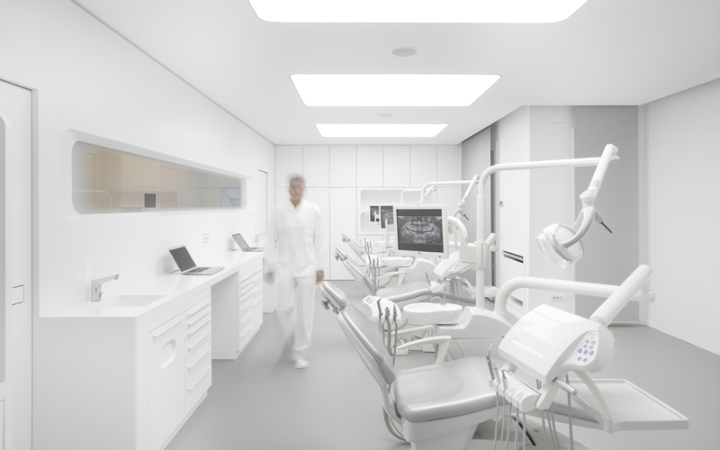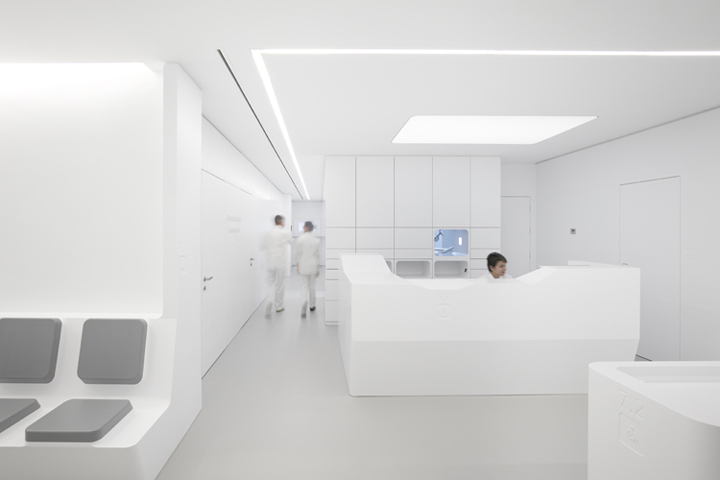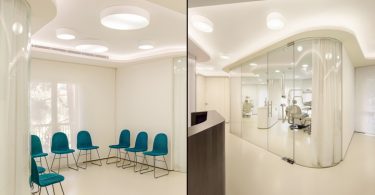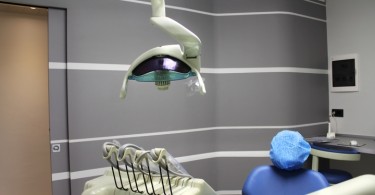Зубная клиника в Катании выполнена дизайнерами, которые полностью использовали белый цвет в интерьере, с редкими вставками в него серого и чёрного.
Из её названия – White Space – белая планета, уже можно сделать вывод о том, что она представляет собой, а взглянув на фотографии интерьера вы убедитесь в своей правоте.
Как и любое здание, начинается она со стойки администратора, которая здесь не ровная, что, собственно, её совсем не портит.
В качестве освещения были сделаны большие световые плитки, встроенные в потолок, и узкие светодиодные линии по бокам.
Кабинеты полностью оснащены всей необходимой мебелью и аппаратурой, достаточно свободны и удобны как для врачей, так и для их пациентов














